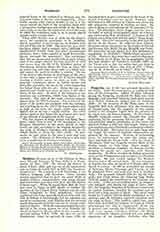

Visdelou, CLAUDE DE, b. at the Chateau de Bienassis, Pleneuf, Brittany, August 12, 1656; d. at Pondicherry, November 11, 1737. He entered the Society of Jesus, September 5, 1673, and was one of the missionaries sent to China by Louis XIV in 1687 (see Ferdinand Verbiest). He acquired a wide knowledge of the Chinese language and literature. Other learned Jesuits considered that he gave too much credit to modern Chinese commentators, who being atheists and materialists read their own ideas into the ancient Chinese sages. When the papal legate Msgr. de Tour-non came to China in 1705 chiefly to regulate the question of the Chinese Rites, Visdelou was the only Jesuit favorable to their prohibition. Tournon appointed him Vicar Apostolic of Kwei-chou with the title of Bishop of Claudiopolis, but his superiors opposed the nomination, since Visdelou had not received papal dispensation from his vow not to accept ecclesiastical dignity. With the missionaries who had submitted to the decree against the rites, Visdelou followed the legate to Macao, where he was secretly consecrated bishop, February 2, 1709. He then set out for Pondicherry where he arrived, June 25, 1709; he remained there in great retirement in the house of the French Capuchins until his death. Visdelou took with him over 500 volumes in Chinese and almost his sole occupation consisted in working on these. He sent to Rome several writings on the questions of the rites. The Sinologist, James Legge, says he “was in the habit of writing extravagantly about the Chinese and caricaturing their sentiments” (“Notions of the Chinese concerning God and the spirit”, Hong Kong, 1852, 10). His most trustworthy works deal with the history of the Tatars. He collected from Chinese historians unique documents on the peoples of Central and Eastern Asia, Huns, Tatars, Mongols, and Turks. His researches on this subject were first published as supplement to Herbelot’s “Bibliotheque orientale” (1779). However, they must have assisted Deguignes in his history of the Huns, for the geographer Anville who had handled all Visdelou’s valuable MSS. on the Tatars tells us that the author had sent them to the Academician Malet, who died in 1736 (“Memoire de M. d’Anville sur la Chine”, 1776, 33).
JOSEPH BRUCKER

